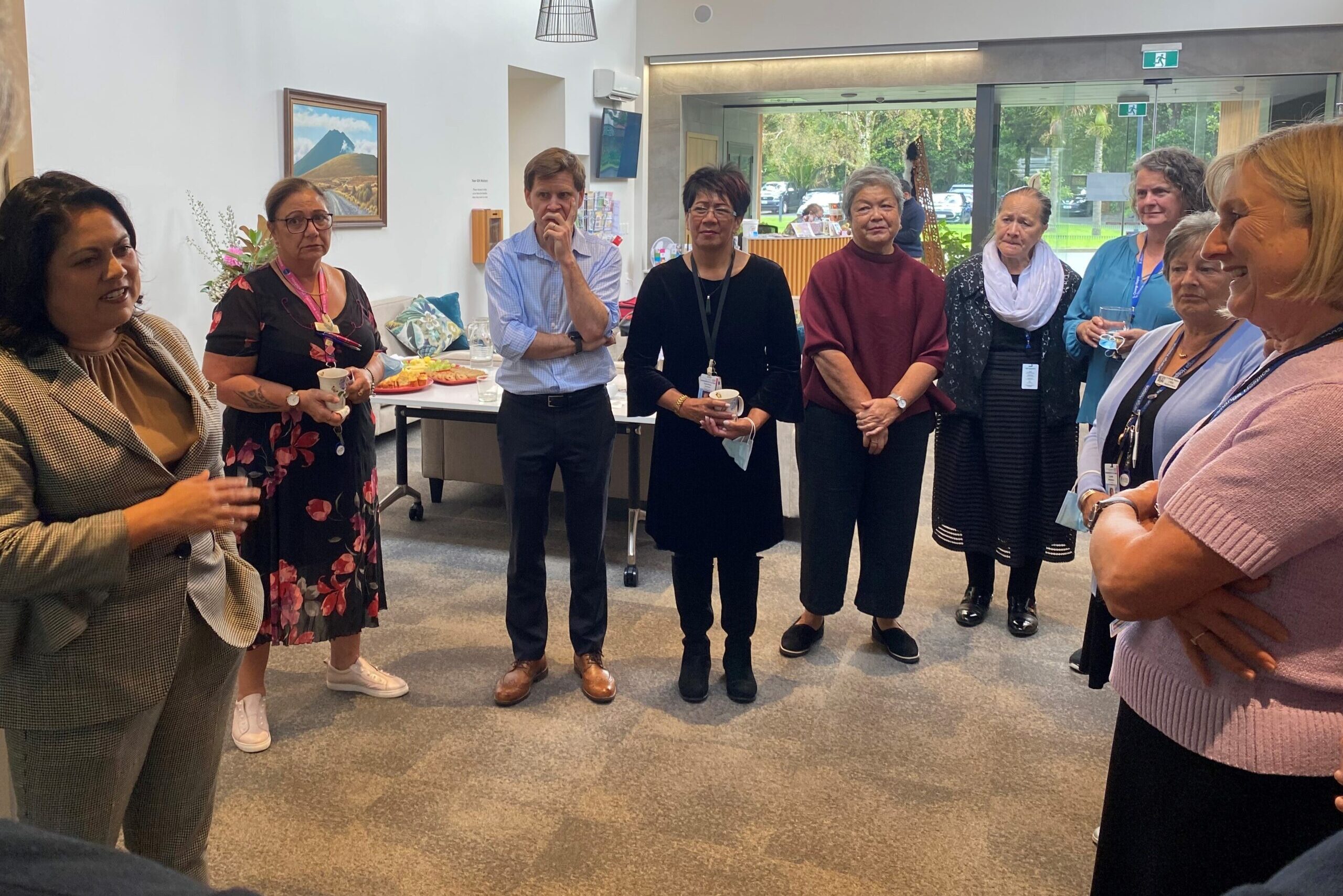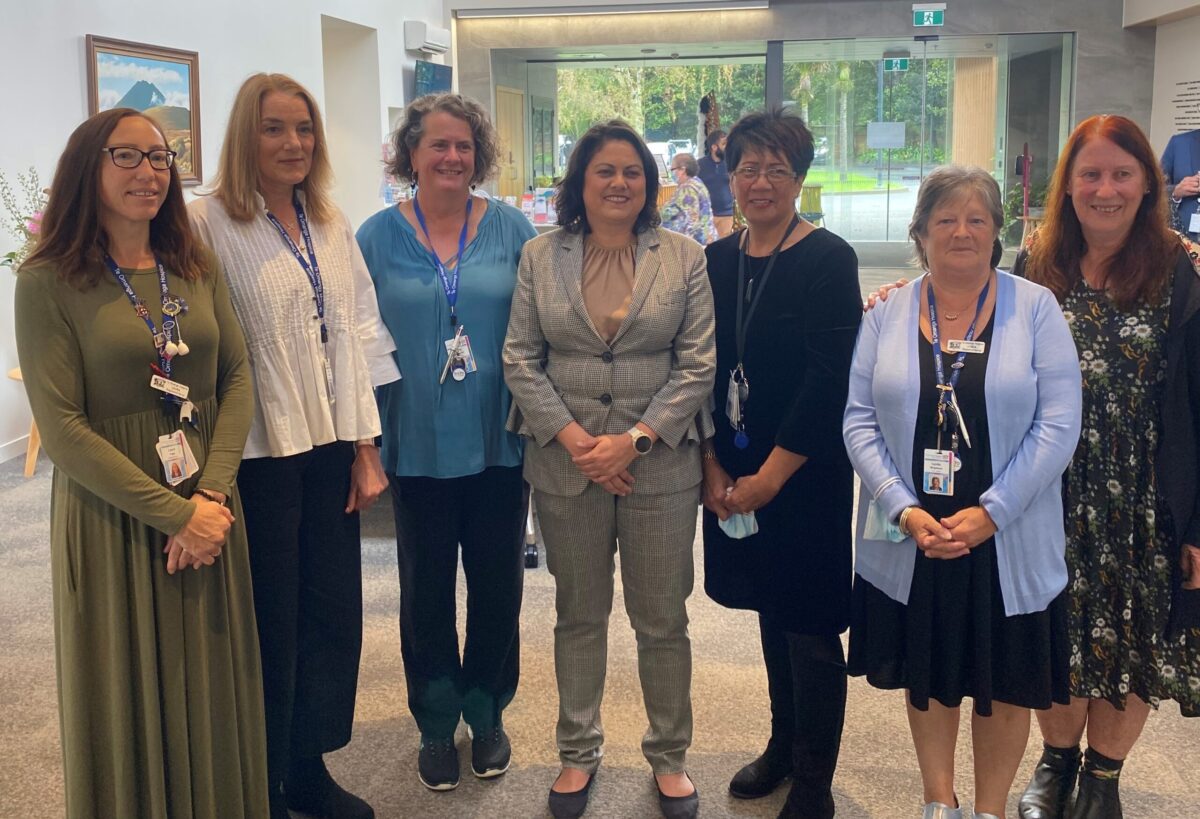Minister of Health Ayesha Verrall announced a pay rise of up to 15 per cent for more than 8000 community nurses, from April, when she visited Te Omanga Hospice in Lower Hutt today. This would bring most base wages to about 95 per cent of their hospital colleagues, she said.
“Improving pay for our hardworking community nurses demonstrates the Government’s commitment to reducing the gap with nurses who work in hospitals,” Verrall said in a statement.
The boost is part of a $200 million yearly pay disparities package announced last year, to lift pay rates for nurses outside hospitals and bring them closer to their Te Whatu Ora peers.
“I’m very pleased nurses in aged residential care, hospices, home and community support services, along with those in Māori and Pacific healthcare, will soon be receiving more money in their pockets,” Verrall said.
‘We’re losing our workforce and it’s important that we keep and retain our workforce and can offer them pay that allow them to have a quality of life as well.’
Te Omanga Hospice nurse and NZNO delegate Laura Page — who was at the launch — said a 15 per cent pay boost would help keep nurses in community health, instead of seeking better pay elsewhere.
“This is going to be huge in terms of recruitment and retaining nurses in the community,” Page told Kaitiaki Nursing New Zealand. “The cost of living is having a huge impact on where people choose to work. We have seen a lot of our staff move towards hospitals quite simply because the cost of living has been beyond the wage they receive.”
Page said many nurses wanted to work in community settings, but couldn’t afford to.
“We’re losing our workforce and it’s important that we keep and retain our workforce and can offer them pay that allow them to have a quality of life as well.”
‘There’s physical, mental, spiritual and emotional input we do daily – it’s not just a task we carry out repetitively.’
Investing in community nurses would also help give a “smoother transition” for patients from hospitals back into their communities and homes — ultimately boosting community health and morale.
“A lot of the times we see things falling over because we don’t have carers available or we can’t put extra supports in – it’s because there simply aren’t the people.”
Nursing was a demanding and variable role, Page said.
“There’s physical, mental, spiritual and emotional input we do daily – it’s not just a task we carry out repetitively. It’s constantly changing, you’re having to think on your feet,” she said.
“It’s good to see a bit of recognition that we are important, that we do the hold the health workforce up – because without nurses there really is no health workforce.”
Plunket, mental health, Family Planning, school nurses next
Hospices, aged care, home support and Māori and Pacific health organisations were first in line for pay rises as they had the biggest pay gaps, then-minister of health Andrew Little said at the time.
Verrall said Whānau Āwhina Plunket, Family Planning, school nursing services, mental health and addiction, rural hospitals and telehealth are next in line for a parity pay boost, from July 1.
Primary health care workers such as practice nurses had so far been excluded, as there was “no real evidence” of pay disparity, Little said last year — a decision NZNO has challenged.
Tōpūtanga Tapuhi o Aotearoa NZNO chief executive Paul Goulter said 95 per cent “won’t close the gap completely but will go a long way towards it”.
However, excluding practice nurses was “a real concern”, he said.
Verrall has since indicated general practice may be eligible for the next wave of payments in July, if disparities were found.
Goulter said NZNO’s campaign to value “every nurse, everywhere” had driven the change.
Verrall said the funding was a “substantial step” towards pay parity for nurses across sectors, and followed “historic” pay increases for hospital nurses. In March, the Government paid Te Whatu Ora nurses $500 million in interim equity payments — giving them a 14 per cent increase in base salary, or about $12,000.
A legal dispute between NZNO and Te Whatu Ora over final pay equity rates and how far back payments should go is continuing.






